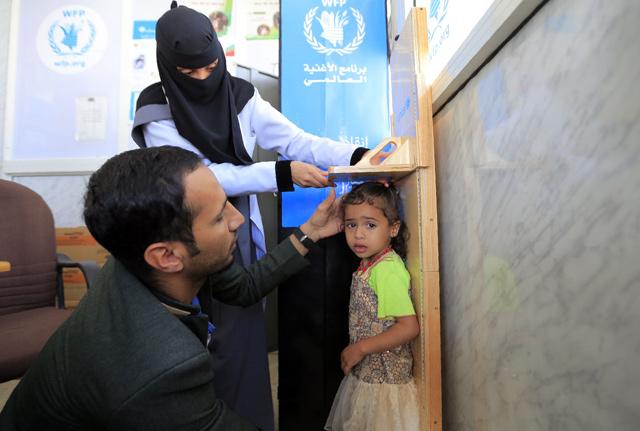- International News
- Web-2020-10-28 | 02:54 pm

Malnutrition among young children has soared to the highest levels ever recorded in parts of war-torn Yemen, the UN said on Tuesday, as coronavirus and shortfalls in aid funding worsen a humanitarian crisis.
More than half a million cases of acute malnutrition among children under five were recorded in the south, and the results of a survey of the north currently under way are expected to be "equally concerning", it said.
A 15.5 per cent increase in severe malnutrition in the age group has left at least 98,000 at "high risk of dying" unless they receive urgent treatment, the Food and Agriculture OrganiSation, the World Food Programme and the UN children's fund UNICEF said in a statement.
"The data we are releasing today confirms that acute malnutrition among children is hitting the highest levels we have seen since the war started," said Lise Grande, the UN's humanitarian coordinator for Yemen.
Yemen, which since 2014 has been gripped by a war between Iran-backed Houthi rebels and a beleaguered government which is supported by a Saudi-led military coalition, has sunk into the world's worst humanitarian crisis.
More than 24 million people, nearly 80 per cent of the population, depend on some form of aid for survival, and this year the situation has deteriorated sharply.
"Escalating conflict and economic decline, plus the overwhelming impact of the COVID-19 pandemic, has pushed an already exhausted population to the brink," the UN said, adding that aid programmes including emergency food assistance have been disrupted as funds dry up.
'Catastrophic'
The UN warned in July that nearly one in nine people in the world are going hungry, with the coronavirus pandemic and climate-related shocks exacerbating already worsening trends this year.
In Yemen’s children’s wards, the evidence of the crisis is clear, with skeletal youngsters crying weakly as anxious families hover over them.
Many parents fear their youngsters are at risk of contracting coronavirus if they are hospitalised, and are becoming reluctant to send them to clinics for treatment.
"Malnutrition here and in Yemen has become catastrophic and there is a significant increase in the per centage of malnourished children,” said paediatrician Fahad Al Qudsi, who works at Sanaa’s Joumhouri hospital.
"There is a rising shortage of medicines, as well as proper nutrition for pregnant mothers,” he told AFP Tuesday.
Only $1.43 billion of the $3.2 billion needed to fund Yemen aid projects had been received by mid-October.
In September, the UN said that critical aid had been cut at 300 health centres and more than a third of its major humanitarian programmes had been reduced or shut down entirely.
Several Arab donors, including Saudi Arabia, have failed to deliver on their aid pledges, a UN official told the Security Council at the time, as donors face their own economic troubles amid the coronavirus crisis.
"We’ve been warning since July that Yemen is on the brink of a catastrophic food security crisis,” said Grande.
"If the war doesn’t end now, we are nearing an irreversible situation and risk losing an entire generation of Yemen’s young children.













